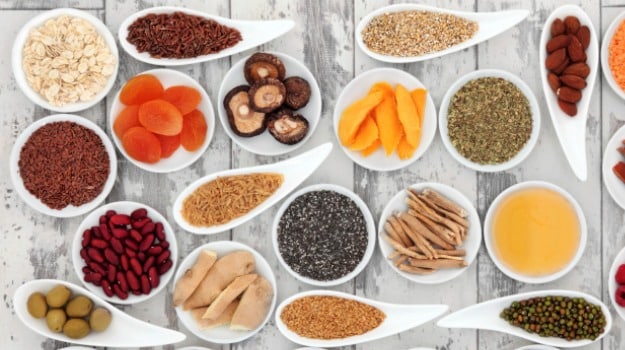Ayurveda is an ancient study of the human body and health. It believes that metabolic balance is the way to a healthy body and mind. Its aim is to balance the dhatus (tissues) doshas and agni with a calm mind. Ayurveda uses the natural healing powers of food to achieve this. Our digestion involves assimilation, absorption and elimination. In Ayurveda, Agni is what converts food to energy and when we do not eat the right food at the right time and in the correct combination, this Agni is disturbed the Dhatus will not be able to get the nutrients from the food leading to imbalance and health issues.
All Ayurvedic medicine practitioners believe in food combinations that are not correct and are termed "Virudh Anna". These food are thought to be incompatible due to opposing qualities one may be hot and the other cold, or two foods with similar qualities when consumed together may land up increasing a particular dosha causing imbalance. Processing of foods may change the original food to an extent that it is rendered unhealthy. These principles guide the ayurvedic prescriptions.
Here Are 10 Food Combinations That Are Best Avoided In Daily Diet:
1. Fish and Milk
This is something we have heard and many of us follow. Ayurveda principles explain it by stating that even though both these food are sweet to taste, their potency is opposite. Fish is hot and milk is cold, affecting circulation. Hence they should not be consumed together.
2. Milk and Holy Basil
This is something we all swear by for colds and coughs. But Ayurveda suggests that there should be at least a 30-minute gap between the two.
(Also Read: These 7 Classic Food Combinations Are Ideal To Make When Craving A Comforting Taste)

Milk and basil is best avoided together. Photo: iStock
3. Milk And Fruit
Milk is not to be combined with sour fruits and also bananas. Banana shake is an all-time favourite but according to Ayurveda it is not a healthy combination
4. Potato And Protein
Proteins and starches do not go together as they overload the system because they need different enzymes for digestion. So potatoes with proteins may be tasty but delay digestion.
(Also Read: These 7 Regional Food Combinations Will Give You A Taste Of India)

Potato and protein is best avoided together. Photo: iStock
5. Cucumber And Tomato
Cucumber and tomato are not compatible, and nor are these with yogurt. So we need to rethink our salads and raita. Cucumber and tomatoes are not compatible with lemon either. So drizzling lemon juice on salad and kachumber salad are out.
6. Honey And Heat
Honey, when heated losses its natural properties. Honey should be avoided by people with increased pitta as it increases heat.
7. Grains And Fruits
Grains and fruits should be avoided in one meal. This should help the argument about taking fruits with meals or not.
(Also Read: 7 Low-Effort Food Pairings Suggested By Reddit Users)

It is best to avoid grains and fruits in the same meal. Photo: iStock
8. Spinach And Sesame Seed Paste
Spinach and sesame seed paste when consumed together may cause loose motions and hence should be avoided.
9. Jaggery And Curd
Jaggery and curd may cause weight gain and have a detrimental effect on cold, cough. Punjabis who love this combination need to rethink. Misti Dohi is traditionally made with Nolan Gur so I think that is ok.
10. Ghee And Honey
While consuming ghee with honey 2:1 proportion is okay, but equal amounts should not be used unless other ingredients are present.
(Also Read: Biryani Paired With Chocolate Spread Goes Viral, Netizens Call It An 'Abomination')

These are just a few that I have shared with you. Amongst the Ayurvedic followers also there may be some contradictions regarding these, but the human body is such a finely tuned software that we each individually need to find our own path. However, if you decide to follow this path then I would suggest that you meet an expert and get a fine-tuned version for yourself. The need is to stick to it for at least 3 months to see change.
About Rupali DattaRupali Datta is a Clinical Nutritionist and has worked in leading corporate hospitals. She has created and lead teams of professionals to deliver clinical solutions for patients across all medical specialties including critical care. She is a member of the Indian Dietetic Association and Indian Association of Parenteral and Enteral Nutrition.










